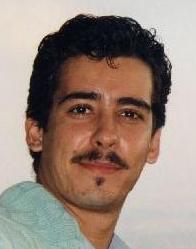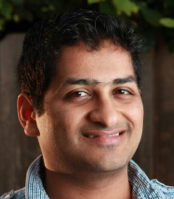Invited speakers
SCN 2014 will have three invited speakers:
 |
Dario Catalano (University of Catania, Italy) Title: Homomorphic Signatures and Message Authentication Codes Abstract: Homomorphic message authenticators allow to validate computation on previously signed data. The holder of a dataset {m1,...,ml} uses her secret key sk to produce corresponding tags (σ1,...,σl) and stores the authenticated dataset on a remote server. Later the server can (publicly) compute m=f(m1,...,ml) together with a succinct tag σ certifying that m is the correct output of the computation f. A nice feature of homomorphic authenticators is that the validity of this tag can be verified without having to know the original dataset. This latter property makes the primitive attractive in a variety of context and applications, including, for instance, verifiable delegation of computation on outsourced data. In this talk, I will give an overview of the state of the art in the areas of homomorphic signatures and message authentication codes. I will (briefly) describe some of the most recent results and provide an overview of the main challenges that remain to address. Short bio: Dario Catalano did both his graduate and his undergraduate studies at the University of Catania. During his Ph.D. he spent more than two years in New York, where he was affiliated with the Computer Science Department of Columbia University and with the Security Group of the IBM T.J. Watson Research Center. Before joining back the University of Catania as an associate professor, he was part of the Crypto Team, at the Laboratoire d’Informatique de l’Ecole Normale Supérieure in Paris, for five years (1 as a postdoc and 4 as a full time CNRS researcher). |
 |
Sanjam Garg (IBM Research T.J. Watson, USA) Title:Program Obfuscation via Multilinear Maps Abstract:Recent proposals for plausible candidate constructions of multilinear maps and obfuscation have radically transformed what we imagined to be possible in cryptography. For over a decade cryptogra- phers had been very skeptical about the existence of such objects. In this article, we provide a very brief introduction to these results and some of their interesting consequences. Short bio: Sanjam Garg is a Josef Raviv Memorial Postdoctoral Fellow at IBM Research T.J. Watson. His research interests are in cryptography and security, and more broadly in theoretical computer science. He obtained his Ph.D. from the University of California, Los Angeles (UCLA) in 2013 and his undergraduate degree from the Indian Institute of Technology, Delhi in 2008. Sanjam's Ph.D. thesis provides the first candidate constructions of multilinear maps that have found extensive applications in cryptography, most notably to software obfuscation. He has published several papers in top cryptography and security conferences and is the recipient of various honors such as the 2013 ACM Doctoral Dissertation Award and the best paper award at EUROCRYPT 2013. |
 |
Hoeteck Wee (École Normale Supérieure, France) Title:Functional Encryption and its Impact on Cryptography Abstract: Functional encryption is a novel paradigm for public-key encryption that enables both fine-grained access control and selective computation on encrypted data, as is necessary to protect big, complex data in the cloud. In this article, we provide a brief introduction to functional encryption, and an overview of its overarching impact on the field of cryptography. Short bio: Hoeteck Wee is a chargé de recherche at the École Normale Supérieure, Paris under the CNRS. He received his Ph.D. from UC Berkeley and his B.Sc. from MIT, both in Computer Science. He is the recipient of the US NSF CAREER Award in 2010, a Humboldt Research Fellowship in 2012, and a Google Faculty Research Award in 2014. His research addresses new cryptographic challenges posed by Big Data and the Internet. |